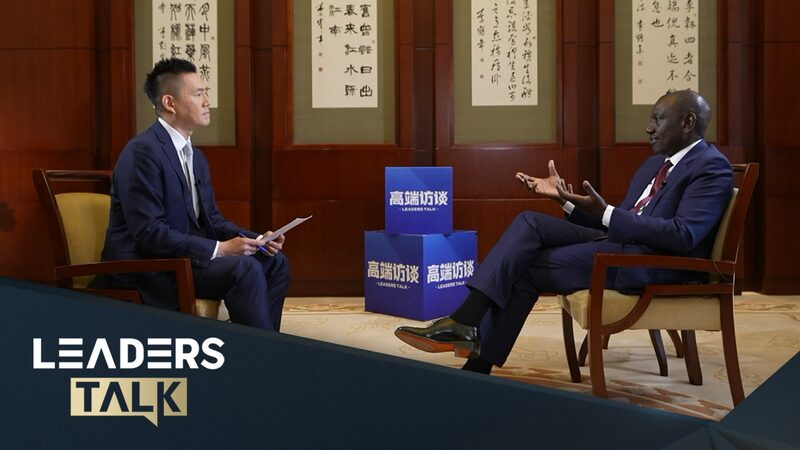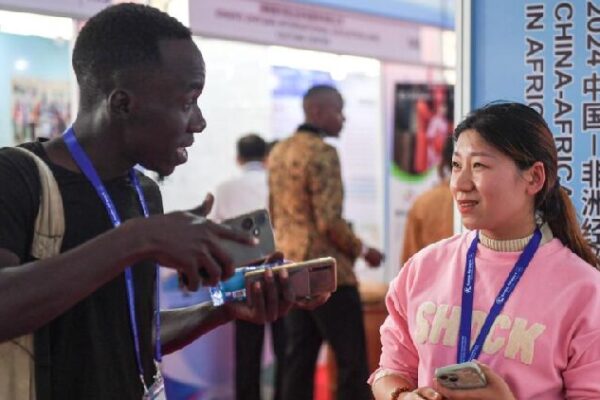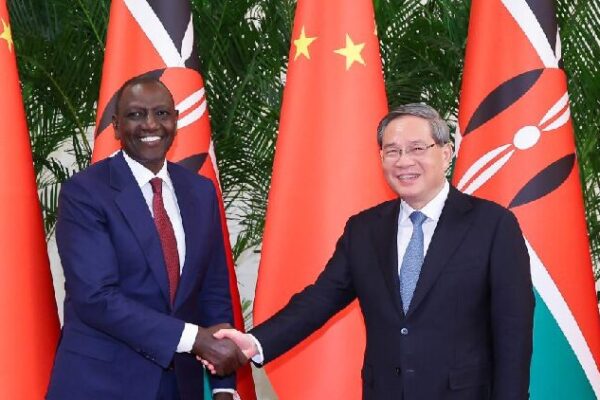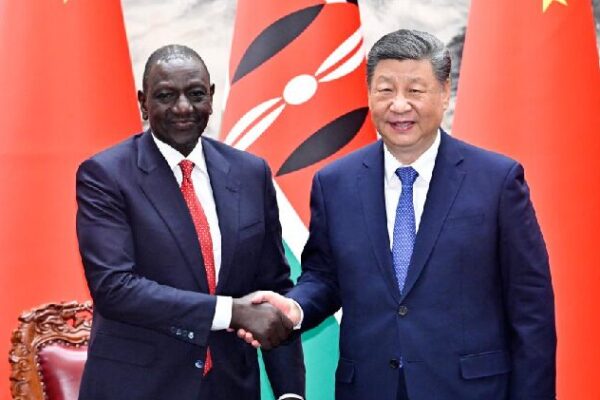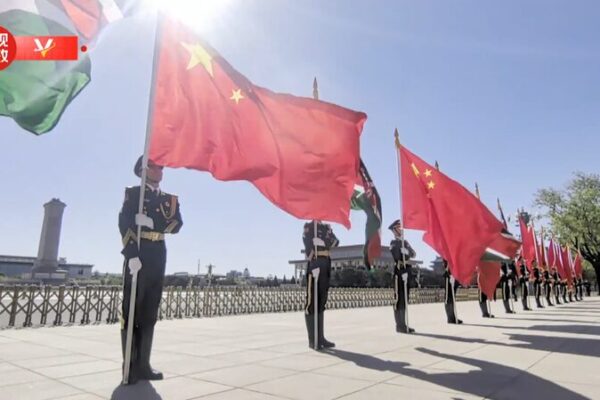Kenyan President William Ruto has embarked on a significant visit to China to strengthen ties and explore new avenues for cooperation between the two nations. The visit focuses on learning from China’s remarkable journey in governance, economic development, and global leadership, as well as discussing bilateral relations and mutual interests on regional and global issues.
On Thursday, President Ruto met with Chinese President Xi Jinping, resulting in an agreement to elevate their bilateral relations to a new level. The two leaders committed to developing an all-weather China-Africa community and agreed to enhance cooperation in various sectors, including trade, investment, industry, agriculture, green development, and infrastructure connectivity under the Belt and Road Initiative (BRI).
The two countries also expressed opposition to unlawful unilateral tariffs, decoupling attempts, tariff barriers, and technology blockades, emphasizing the importance of fair trade practices.
President Ruto’s visit is seen as a strategic move to bolster economic, political, and strategic relations with China amid global economic challenges. By strengthening ties with the world’s second-largest economy, Kenya aims to accelerate its transformation through increased trade, BRI-built infrastructure, and modernization of agriculture.
The Belt and Road Initiative has significantly impacted Kenya’s development and improved the quality of life for its people. Projects such as the Standard Gauge Railway, the Lamu Port project, the Mombasa oil terminal, and the Nairobi Expressway have enhanced connectivity and promoted integration not only within Kenya but throughout East and Central Africa.
China is Kenya’s largest trading partner. In the first quarter of 2023, bilateral trade between China and Kenya increased by 11.9 percent to over $2.2 billion. Chinese goods like home appliances, electrical components, and construction machinery have benefited Kenyan consumers and infrastructure development. Meanwhile, China’s imports of Kenyan agricultural products, ranging from avocados to tea, are boosting the livelihoods of Kenyan farmers. The establishment of the Kenya Tea Holding Center in Fujian further supports small Kenyan farmers and reinforces the country’s presence in Asia.
During his visit, President Ruto witnessed the signing of several investment deals with Chinese companies. These agreements include plans to establish a special economic zone, construct warehouses and factories for textiles, garments, and solar energy products in Kenya, increase steel production, and produce smart equipment. These investments are expected to inject much-needed capital, create thousands of jobs, and support manufacturing and technology-driven growth in Kenya.
The visit also saw the signing of memorandums of understanding across a wide range of sectors, including the blue economy, fisheries, maritime affairs, and the digital economy. These cooperation deals aim to empower coastal communities, promote research and technological exchanges, hasten digital transition, increase exports, and fortify Kenya’s poverty alleviation efforts. They will also contribute to combating climate change.
China also expressed support for the African Union’s Trans-African Highway Network, which will facilitate socio-economic growth, promote inter-regional integration, create regional economic hubs, and generate jobs. Kenya’s strategic position has been significantly boosted due to the network, making it a global hub for logistics, trade, and related services.
By strengthening their partnership, China and Kenya are demonstrating a commitment to mutual development and to the broader goals of the Global South. Their collaboration aims to enhance the representation and influence of developing countries on the world stage, fostering a more inclusive and equitable global community.
Reference(s):
China and Kenya break new ground for Global South cooperation
cgtn.com



